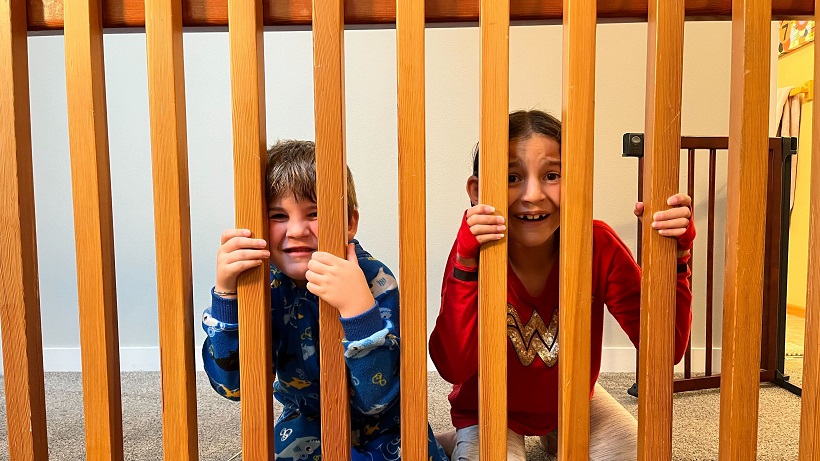One of the parts of parenting that Duncan and I struggle with the most is giving reasonable and logical consequences. We’ve gotten better at it now as the children are older and are a tiny bit more rational than when they were in preschool, but it still isn’t easy. It’s much easier, in the frustration of a slower than necessary bedtime routine, to demand, “If you don’t get out of the bathtub right now, there’s no iPad time tomorrow.” This consequence is threatened in the heat of the moment, and it’s not at all logical or relevant to bath time. Plus, enforcing it often causes more pain to us than to our children because we need those 30 minutes of screen time while we’re making dinner as much as they do.

Even God struggles with determining logical consequences throughout the Torah. Remember, Moses isn’t allowed into Israel because he didn’t listen to God, who instructed him to talk to the rock, but Moses instead remembered and acted on an earlier instruction to hit the rock to get the result he wanted. Seems like an outsized punishment for Moses’s mistake, doesn’t it? As a parent figure, it seems that God has to learn about logical consequences too. And in fact we finally have some workable guidance in this week’s Torah portion.
Parshat Shoftim is a section of Torah that completely focuses on the legal system, justice, and context for the laws. This text includes the commandment to establish judges and officers, as well as a listing of punishments for certain transgressions against mitzvot. We also learn about the laws regarding false witness and murder.
In chapter 19 God reiterates a lesson that has been shared before in the Torah (twice, actually). You may know it as “eye for an eye,” but a more complete reading includes “Life for life, eye for eye, tooth for tooth, hand for hand, foot for foot.” These are not meant to be taken literally, but as an instruction to have the punishment fit the crime, and neither more nor less harsh than the original transgression.
It’s easy to go on consequence overload when you’re in an emotional moment. The Torah is itself, however, a grounding resource. Reading these same texts year after year is what grounds us emotionally and spiritually, and it reminds us, especially in this week’s portion, that only when we’re in that grounded space can we act justly.



